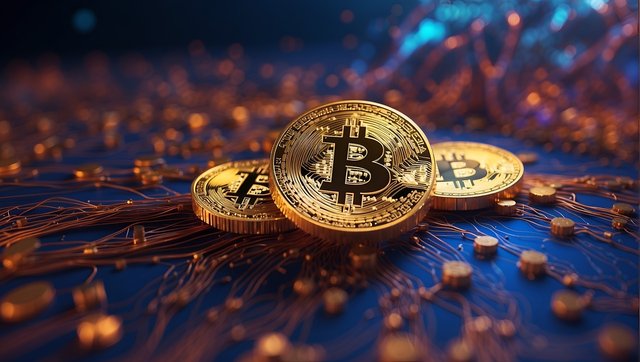"Stable Coins and Their Impact on Traditional Financial Systems"
Assalam O Alaikum |
|---|
Hello, dear friends! Well, come to my post. How are you all? I hope you will be doing well, by the grace of Almighty Allah. I'm also fine and enjoying my day. Today I'm here to share my knowledge with you about the topic "Stable Coins and Their Impact on Traditional Financial Systems" in this Steem Alliance community. So let's start without any further delay.

Friends, as we all know, stable coins are digital currencies that are designed to maintain their stable value, which is why they are considered a significant player in the crypto market. The value of digital currencies like Bitcoin and Ethereum fluctuates on the basis of market conditions, which can create difficulties for people in terms of losses during their price movements.
On the other hand, stable coins like the US dollar emerged as the most famous stable currency, whose value remained unchanged during market volatility and the price fluctuations of other digital currencies. Due to all these qualities, stable coins have a great role in the financial markets, and they are benefiting the whole market due to their volatility.
Due to that level of stability, stable coins are affecting various payment sectors, from the banking system to cross-border payments or transactions. The stable coins are affecting them passively. This is because they bring significant challenges to the banking system by validating transactions seamlessly and quickly with low loss fees as compared to traditional banking systems.

In most cases, the payments and transfer programmes of traditional banking systems take a very long time as we have to go to different intermediaries to complete that task, which takes a lot of time, incurs high fees, and makes the process complicated. But stable coins have made those kinds of transactions very easy and at very low fees because no intermediaries are involved in them.
Furthermore, to perform such kind of transactions, we have to go to the banks, where that process takes a very long time, but when we want to perform such kind of transactions through stable coins, then we just need to have an internet connection, a digital wallet or exchange, and the wallet address of the receiver. So in terms of results, that process is very short, efficient, reliable, and charges very low fees.
Also, transactions through stable coins can be utilised in areas where traditional banks aren't present, so people can pay their bills, fees, and other financial services. In this way, it reduces the need for bank accounts and the involvement of several intermediaries. After the banking system, stable coins also have a crucial impact on monetary policies.
.webp)
As we know, the central banks have full control over the supply of money within the traditional banks, as they control them through the traditional currencies. But the stable coins affect these policies as people utilise the stable coins for payments and other financial services instead of traditional currencies. That thing has many impacts on the economic growth and inflation rate of currencies.
Besides all these things, stable coins come with various regulatory challenges as they are controlled or backed by private entities, whereas traditional currencies are backed by government institutes that act on the rules and regulations set by the government in all banks of that country. That thing is very important to enhance the security and efficiency of assets.
.webp)
Despite all these challenges, stable coins have many positive impacts on the financial system as they enhance transactions in a cheaper, quicker, and easier way through blockchain systems because they are built on blockchain technology. So, by validating cross-border transactions in a cheaper and quicker way, stable coins boost local economies.
In addition, table coins play a vital role in decentralised finance (DeFi) by enabling people to lend, borrow, and buy digital assets. Also, they provide them with a medium where they can store their assets and use them according to their needs. In terms of results, we can say that when stable coins operate along with DeFi, they can create a great challenge for traditional currencies.
Conclusion |
|---|
In conclusion, we can say that the rise of stable coins has brought significant revolutions and benefits to the financial markets by making transactions easier, faster, and cost-effective. But on the other hand, it also has a dark side, which creates challenges for monetary policies and regulatory frameworks. As a whole, we can say that if the stables keep growing in that way, they will definitely come out of this challenge.

X Share